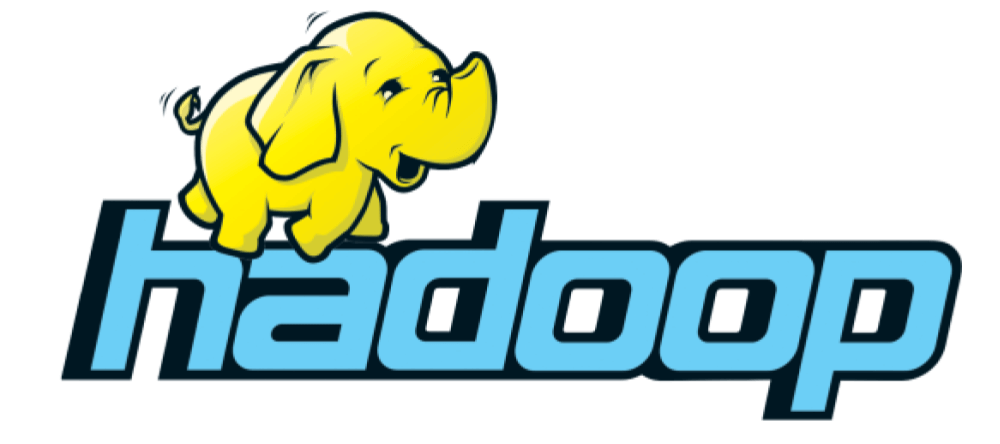Data is increasing constantly and much of it goes unused. Businesses that can access it, analyze it and leverage it to improve business operations have an advantage over competitors. This is where Hadoop comes into play.

Hadoop is an open-source programming framework. It is sponsored by the Apache Software Foundation, based on Java and extensively used in the IT world. Hadoop makes it possible to store and process large data sets in a distributed computing environment.
Data is shared across multiple nodes in a node-cluster system. Hadoop can have a great impact on core business functions and make businesses more efficient and profitable.
Handles large data volumes
As solutions for handling data become more complex in nature, a traditional approach often no longer suffices. Many businesses now use Hadoop and Spark, both Apache open-source projects, to handle large data volumes.
Businesses use Hadoop to manage and perform big data analytics and Spark for SQL and ETL batch jobs across large datasets, machine learning tasks and processing of streaming data. Hadoop and Spark can work together or separately.
It is no longer about Hadoop or Spark but about integrating them and other solutions for better performance, speed and scale. The right blend of technologies can result in efficient solutions.
Cost-effective and scalable
Hadoop is relatively cost-effective in comparison with other solutions. It is highly scalable as it can store and distribute large data sets across many servers that run in parallel. It enables businesses to run their apps on thousands of nodes involving numerous terabytes of data.
Traditional database management systems are very costly to scale to such a degree that they can manage massive data volumes. Older solutions only keep important data and delete raw data. This may have short-term benefits but causes difficulties when raw data is required to achieve specific goals.
With Hadoop, there is no need to delete raw data because it can affordably store all company data for later use. If a business changes the direction of its processes, it can easily refer to raw data to make appropriate decisions.
Flexible
The flexible nature of Hadoop means that businesses can expand and adjust their data analysis as they grow. They can use Hadoop to generate data from various data sources, such as email conversations, click-stream data and social media. It can access Twitter, Facebook and other data warehouses for information. Hadoop allows businesses to store multiple data types, such as images, videos and documents so they are readily available for processing and analyzing.
It also has various functions that include data warehousing, market campaign analysis, recommendation systems and fraud detection. The ability to process a variety of data sets offers a more comprehensive perspective of operations, customers, risks and opportunities. This can be invaluable when making business decisions. Without this overall view, businesses would have to conduct many limited analyses and then try to synthesize the results.
Gives quick access to data
Hadoop’s high processing speed makes it a valuable asset. It can process terabytes of data in minutes and processes both processed and unprocessed data quickly. The data and tools used by the storing system are present on the same server and this allows for quick processing and retrieval of information. Quick access is possible irrespective of the volume across the various clusters.
Resilient to failure
One of the major advantages of Hadoop is its resilience. The Hadoop Distributed File System (HDFS) automatically creates three copies of an entire file across three separate nodes within the Hadoop cluster. If a node fails, there is always a copy to use. It understands that stored data is very important to a business and nothing should happen to it unless the business decides to discard it.
Allows in-house analysis of advanced data
The practicality of being able to work with large data sets makes it possible to customize an outcome without having to rely on specialist service providers. This makes businesses more agile and saves them the costs of outsourcing.
By leveraging all data – real-time, historical, structured and unstructured – businesses can get more return on their investment. For example, if a marketing team can evaluate what consumers think about the brand, they can design their strategies according to their data-based discoveries.
Enhances customer satisfaction
All businesses need to understand their customers and provide them with excellent service. Combining Hadoop and predictive analytics makes it possible to get into the minds of customers. By integrating and analyzing data, it is possible to build a more personalized association with customers.
Analyzing data relating to incoming calls and live chat may reveal that customer satisfaction is dipping. Businesses may decide they need a software solution to get around this. Tech-wonders.com offers advice on how to determine your software needs.
Promotes analysis of sensor and machine data
As more devices connect to the Internet of Things (IoT), the huge amount of data generated can offer some valuable insights. Integrating IoT with Hadoop offers a powerful platform to analyze sensor and machine data. This can help with predictive analysis, provide timely warning of natural disasters and more.
Enhances risk assessment
Risk management involves gauging the odds that a particular event will happen, understanding if the risk is acceptable, if it can be mitigated or if it needs to be avoided at all costs. Traditional risk management solutions are often ineffective and many businesses are looking at new and more effective models.
When it comes to risk management, Hadoop offers an enhanced capability of analyzing data to assess risk so that businesses can prepare contingency plans. Leading global banks are leveraging Hadoop and its ecosystem to manage their data management more holistically and enable more effective risk management.
Conclusion
Big data requires better data management. Implementing the Hadoop framework is not only a cost-effective and efficient way to handle large volumes of data but can help businesses to leverage that data. They can gain insights critical to improve many of their business processes.
Hadoop Logo (Image by Kaijar via cleanpng.com)